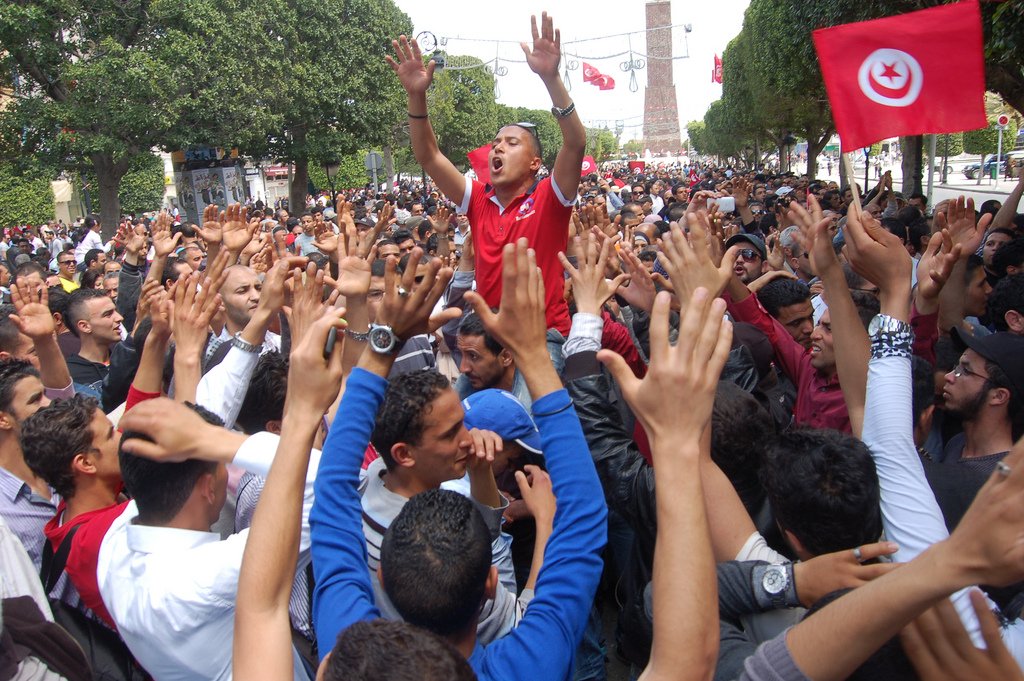
Association
Ahead of the 6th October 2024 elections in Tunisia, ANND’s article covering prospects in the country and the region clearly stated that “a system prevailed in Tunisia that most researchers describe as the rule of one individual.” The article noted that “although the emerging democracy in Tunisia lasted ten years, its popularity weakened, and its contribution was diminished before President Saied ended the process under the pretext of reform. He dissolved its legitimate parliament and abolished its constitution. He excluded its politicians and arrested some of them on charges of conspiracy against state security. Others had to leave and settle abroad”. Against this backdrop, the result of the October elections in Tunisia, and the re-election of President Kais Saied, yet with a very low turnout of 28.8 percent, has not been a big surprise.
The deterioration of an enabling environment and systemic crackdowns remains a key concern. As noted by the representative of IWatch, a Tunisian civil society organisation (CSO), “Several parties boycotted the election, saying it couldn’t be trusted to be free and fair…[however] A free and fair election isn’t just about the act of voting. It’s about a democratic environment where political parties, CSOs, election observers and the media can operate freely without fear of intimidation and legal retaliation. It also requires a transparent and neutral election management body and a stable and consistent legal framework. Tunisia’s electoral environment lacked these essential components, making it impossible to describe the election as truly free and fair”.
The organisation’s representative noted that both iWatch and Mourakiboun, two organisations monitoring the elections, were denied accreditation on the pretext of “suspicious foreign funding.”
UN experts issued statements noting that in the weeks leading up to the elections, over 100 prospective candidates, members of their campaigns and other political figures were arrested on a variety of charges ranging from falsification of electoral paperwork to charges related to national security.
The crackdown ahead of the elections also extended to human rights defenders working on key issues like migrant rights in Tunisia. As the country remains an immigration and transit country, with migrants coming mainly from the Maghreb and from Africa south of the Sahara trying to reach Europe through irregular migration from the Tunisian coasts, the human rights defenders working on migrants’ rights and migration need a safe environment for legitimate human rights defence work, free from intimidation, especially stressing the importance of putting any hate speech or threatening smear campaigns to an end. During the reporting period Abderrazek Krimi and Mustafa Djemali, the project director and head of the Tunisian Refugee Council (TRC) respectively, were arrested and detained regarding the source of their organisation’s foreign funding. In a statement the UN Special Rapporteur referred to the case of the rights defenders and noted that they were doing perfectly legitimate work and yet they are being held without trial in overcrowded and unsanitary conditions, in total violation of international human rights conventions that Tunisia has ratified.
Peaceful Assembly
The number of social movements reported regularly by FTDES indicate that until the last quarter of 2024, a total of 2008 social movements took place in the country. 97.5% of these movements were collective and 80.7% planned, and covered various issues including human rights violations, economic and social rights deprivation.
Expression
* On 1st August 2024, journalist and former President of the Truth and Dignity Commission (TVD) Sihem Bensedrine was arrested.
“In a context marked by the suppression of numerous dissenting voices, the arrest of Ms Bensedrine raises serious concerns about the respect of the right to freedom of opinion and expression in Tunisia and has a chilling effect on journalists, human rights defenders and civil society in general,” the UN experts noted.
Several human rights groups also issued statements on the case of Bensedrine calling for urgent action. Like the UN experts, a joint statement issued by civil society groups expressed concern about the crackdown on civil society and cases of violations ahead of the elections, including the case of Saber Ayari from “Tunifact” as he became “suspected” of “publishing the results of the opinion poll”.
Journalists and media freedom have also been restricted in Tunisia, with several cases indicating an onslaught on criticism and diversity of opinion from Tunisia’s media landscape.
During the reporting period:
*On 22nd March 2024, a political commentator with privately-owned Cap FM radio, Mohamed Boughalleb was arrested, and later in April was sentenced to six months in prison.
*On 11th May 2024, two journalists, Bssais and Zghidi were arrested in connection to Bssais’ television and radio commentary critical of President Kais Saied and Zghidi’s social media posts in solidarity with imprisoned journalist Mohamed Boughaleb.
* On 11th May 2024, lawyer and media personality Sonia Dahmani was arrested. She is accused of spreading false information under Article 24 of draconian cybercrimes Decree-Law 54 which carries a five-year prison sentence and a fine of 50,000 dinars (around 16,000 USD). On 24th October, a Tunisian court sentenced her to two years in prison.